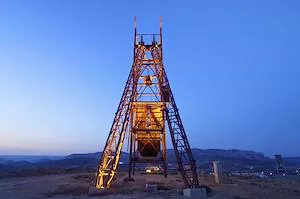New regulatory framework for liquefied petroleum gas

On April 8, 2005 Law No 26,20 that establishes the “LPG Industry and Commerce Regulatory Framework” was published in the Official Gazette, according to section 83 of the Natural Gas Law No 24,076. Both Hydrocarbon Law No 17,319 and Natural Gas Law No 24,076 are complementary to the LPG industry regarding those issues not regulated by the new law.
Law No 26,020 was partially vetoed and promulgated by Decree No 297/2005. Afterwards, and in accordance with the decree, the Secretariat of Energy enacted Resolution No 623/05 that ruled on important articles of the law
Though Law No 26,020 was partially vetoed by the Executive Power in different subjects, the key modification made by the decree was regarding section 14 of the law, which established that the ownership of the containers should be governed by the Argentine Civil Code. Had the original version been maintained, the property of the LPG containers would have been given to their possessors.
Law No 26,020 declares LPG activities of “public interest”, and not a “public service”, which would have entailed a greater degree of regulation. Despite this, the law grants the regulatory authority, the Secretariat of Energy, the capacity to fix the pricing policy for this fuel and even establish the referendum price for containers up to 45 kilograms, depending on the geographical region and the semester the season is in.
Among the regulations aimed to maintain and reduce the price of the containers the most important are: (i) the 50% VAT reduction, exclusively for the sales aimed for home use; (ii) the creation of a “Fiduciary Fund” to assist low income sectors of the population; (iii) the organization by the market members of “Exchange Centers”; and (iv) the incorporation, made by the filling companies of the “Containers Lot” for community use.
The law creates a registry of LPG containers, requires obligatory civil liability insurance comprising full coverage against damages caused to third parties, in the facilities or by the filled containers, and contemplates free LPG exportation once the internal supply is guaranteed.
This insight is a brief comment on legal news in Argentina; it does not purport to be an exhaustive analysis or to provide legal advice.